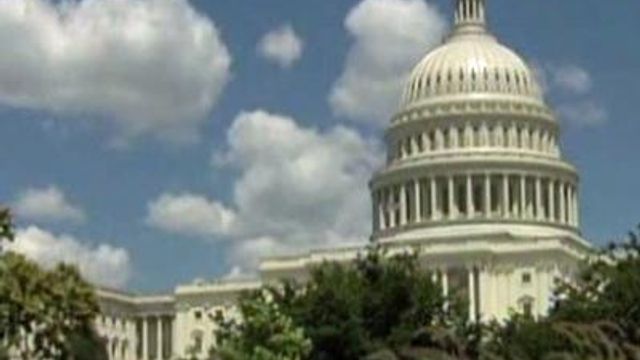NC government watching US debt standoff
North Carolina's top financier said Friday that the state is better situated than most if a stalemate over the federal debt ceiling in Washington continues past next week's deadline to avoid default.
Posted — UpdatedNorth Carolina officials were closely watching the showdown, but State Treasurer Janet Cowell said the state's top credit agency ratings should remain intact in the immediate future even if no agreement is reached on Capitol Hill and with President Barack Obama on raising the nation's debt ceiling by Tuesday. The U.S. Treasury Department has said the government will default on its debt if the limit is not raised.
While House Republicans and Senate Democrats worked on differing plans to avoid a default, elected leaders in North Carolina urged resolution.
"The logjam in Washington has taken us too close to the brink," Democratic Gov. Bev Perdue said in a written statement. "Our federal officials need to come together now to reach a balanced compromise that will avert a (federal) rating downgrade or payment default before it's too late."
Local mayors, including Durham Mayor Bill, are also monitoring the debt situation.
"Failure to successfully moderate the discussion and bring the parties together to resolve the debt ceiling crisis is unacceptable," the July 26 letter states. "Our cities cannot withstand a deeper recession. We cannot weather instability in the municipal bond market which will further slow infrastructure investments and job creation.
"Mayors are in their community every day working together with businesses to find innovative ways to create jobs. There is no greater priority for any mayor in our Coalition. We cannot stress enough the damage you will do to our cities and our State if you do not find common ground."
North Carolina is one of seven states that have the highest rating from all three major bond rating agencies. One agency last week threatened downgrades for five states with triple-A ratings, but North Carolina wasn't one of them. The rating keeps borrowing costs low and is a sign bond agencies are convinced the state is on sound financial footing.
"We were gratified when they said we were not going to be downgraded," Cowell said in an interview, adding that "we feel very comfortable in the short term our rating is secure."
She said the state and local governments are in a good position to avoid wild changes in their debt payments and pension values. The vast majority of the $14 billion in debt issued by the government are fixed-rate securities, Cowell said, so their interest rates won't go up if the overall debt markets weaken and overall interest rates rise.
The $90 billion portfolio that Cowell manages — about $75 million are designated for public employee pension funds — are diverse enough so that losses on U.S. stocks and bonds would be tempered through international investments, as well as investments in real estate and commodities, she said.
The State Treasurer's Office has done all it can "to the portfolio to protect it in any scenario," she said.
Cowell said that while she's optimistic an agreement can be reached, a longer-term stalemate could produce a domino effect that could affect North Carolina's debt rating, leading to higher interest rates when borrowing and lowering investment returns.
States are scrambling to prepare for a potential delay in federal payments and reimbursements if the federal government runs out of money to meet all of its financial obligations. North Carolina is connected closely to the federal government through its military installations and Medicaid spending.
A debt ceiling agreement also could affect North Carolina if the deal leads to Medicaid cuts. Of the state's total budgeted Medicaid spending of $12.8 billion this year, nearly $10 billion would come from the federal government, the state budget office said.
Copyright 2024 by WRAL.com and the Associated Press. All rights reserved. This material may not be published, broadcast, rewritten or redistributed.





